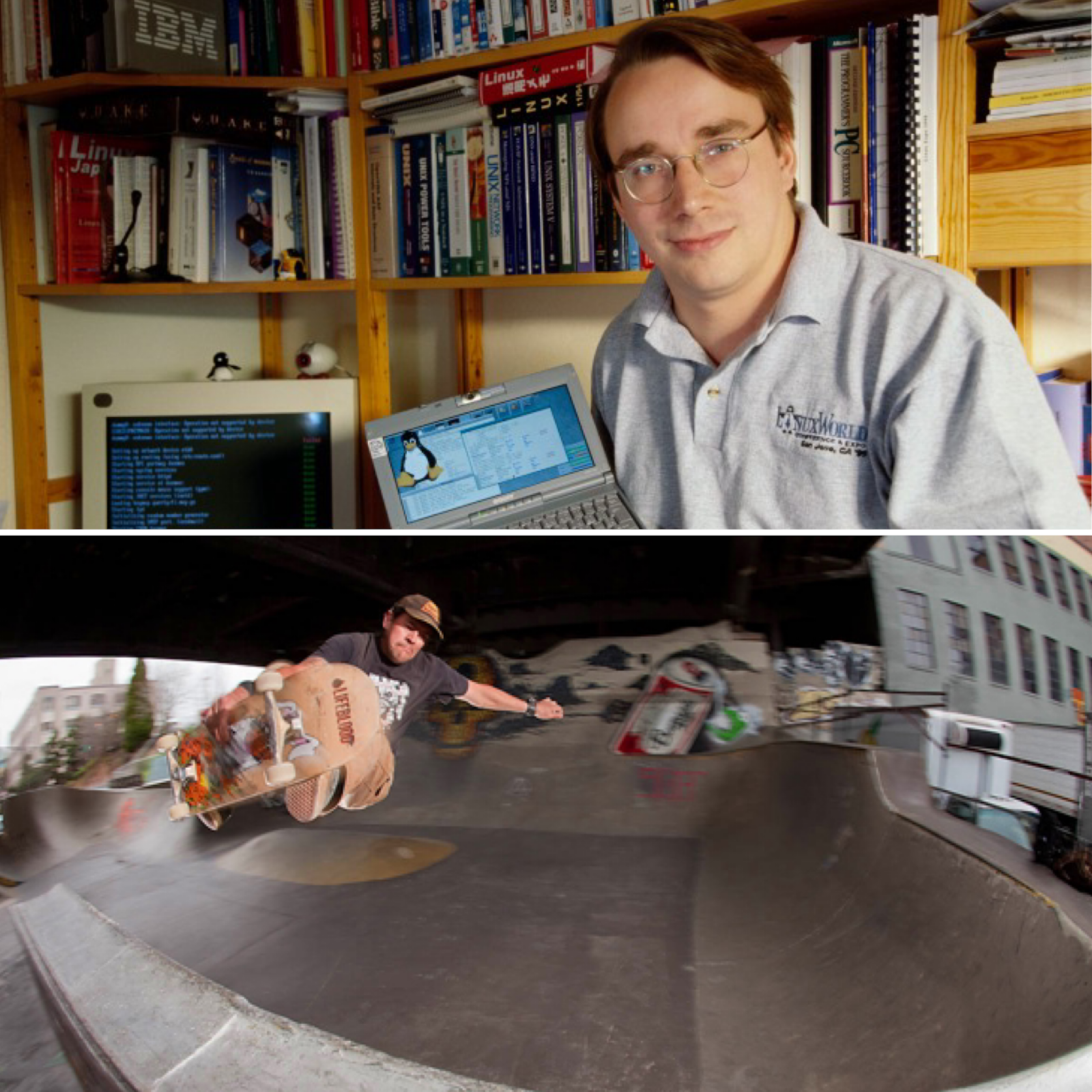
I’ve always felt drawn to the ethos of both Skateboarding and Open Source software. When Rodney Mullen did his TED talk a few years ago, he touched on similarities between the two when he compared skateboarders to Linux kernel hackers. Since then, I’ve pondered about all the other common ground between the two.
Community
Skateboarding and Open Source both thrive when people come together and collaborate. Linus Torvalds was a student who was tired of paying for UNIX, so he started writing a free operating system as a DIY hobby while releasing the source code to the community. Mark “Red” Scott wanted a skatepark in Burnside, so he started concreting one underneath an empty overpass and inspired others to contribute. Both of these people were DIY trailblazers in the ’90s. It’s fair to say that both Skateboarding and Open Source spawn communities from people taking the initiative and doing it themselves. You can also look at the community around a successful open source project, and you’ll see a lot of the same comradery that makes a local skate scene healthy.
Passion before Profit
Skateboarding is something done for the sake of the joy of doing it. Some people can make a decent living from it, but even the ones who can would probably still do it if it wasn’t profitable for them. It’s just too fun! The same can be said for a lot of open source contributors. Many developers are paid to write code (or even contribute to OSS), but they will also contribute code to other projects on their own time because it’s interesting to them, and they love doing it.
Accessible
John Cardiel used to be both a pro skateboarder and a pro snowboarder in the 90’s. He gave some very righteous reasons that he liked skateboarding better in an interview. He talked about how a person needs to be well-off even to try snowboarding because you need to buy expensive equipment, get to the mountains, get a lift pass etc., but if you want to try skateboarding, you only need to get a skateboard then step out your front door into the street. Skateboarding is more accessible to more people. The same point could be made for Open Source software. All you need in the Open Source world is your computer/device, and then the software is free. Expensive proprietary software and DRM can be a barrier for people to learn be productive with technology.
Freedom
In skateboarding, there are no rules. You go skateboarding and do it the way you like. If it’s not working for you, then try it your own way and put your own spin on it. Sure, there are tried and true methods of doing certain things on your skateboard, but ultimately you do whatever you want and have fun. The same cannot be said for a lot of traditional sports and recreation. Open Source projects have communities that manage those projects and steer them to create the software they want, but because the source code and licensing are open, nothing stops you from forking it and making your own version of it. There are always trends and better ideas rising to the top, but ultimately, Open Source and Skateboarding both give you the freedom to do things the way you want.
Global and for Everyone!
Skateboarding isn’t just a California thing anymore. Writing code isn’t just for people with access to high education and expensive technology anymore. These things are worldwide and are embraced by people from all walks of life! There’s still a ways to go in both skateboarding and software development to have a more diverse gender and racial representation. Still, the last few years have been encouraging and stepping in the right direction. The recent uptick in women’s skateboarding has been amazing and has tremendous momentum! I run a volunteer skateboard workshop for kids, and we have been getting more girls in attendance than boys as of late. There are also many programs out there to encourage girls to learn to code. The future looks bright!